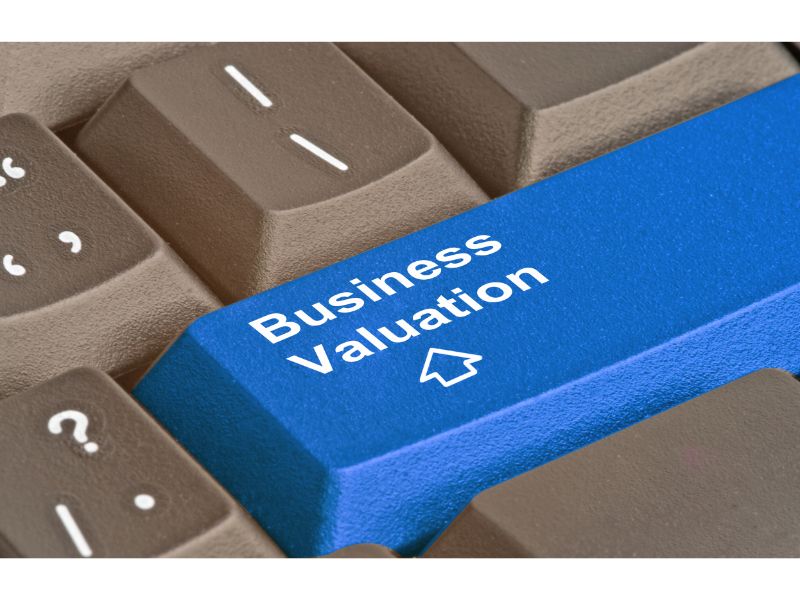As a business owner, you probably aren’t excited about selling your company. However, you’ve likely come to the realization that selling your business is going to be the best move considering your particular situation. Before negotiating with potential buyers, you’ll want to obtain an accurate business valuation. When you go through a business valuation process, you get a complete analysis of your company’s financial health — taking factors like assets, revenue, market conditions, and future growth potential into account. A business valuation is crucial in presale planning.
If you plan on selling your business, getting an accurate valuation beforehand is entirely necessary. First and foremost, doing so is the best way to make sure that the price you decide to sell your business for is reasonable and fair. If the price of your business is too high, it may deter potential buyers. If the price ends up being too low, on the other hand, you’ll be leaving money on the table. Getting a business valuation can also be very helpful if you’re not sure yet whether you want to sell your entire business or just a portion. It can help you figure out which terms you want to negotiate as well.
Let’s delve into the intricate world of business valuations below so that you can get a better idea of the role a business valuation plays in presale planning.
The basics of business valuations
A business valuation is an incredibly useful tool for business owners looking to sell all or some of their company’s operations or assets. Most business owners will also opt to put their business through the valuation process before merging with another company to make sure everything is shipshape with their own company. During a business valuation, a valuation expert will objectively evaluate the various aspects of how your company operates. This process may include an evaluation of your company’s management, market value, capital structure, and potential future earnings.
Evaluators take several approaches when conducting a business valuation on a company. For example, some might compare your business with similar businesses or discount your cash flow models.
Putting your company through a business valuation is also necessary for tax reporting reasons. The Internal Revenue Service requires you to value your business based on its fair market value, which could significantly impact the tax consequences that come with selling or gifting shares of your company.
How a business valuation helps with presale planning

Selling a business can be a complicated process, and obtaining a business valuation beforehand is a great way to make sure that everything goes smoothly. It can be difficult to know how to establish a realistic selling price for your business on your own, so don’t be afraid to ask for help from a professional. Let’s look at some of the main benefits a business valuation can provide you with as you go through the presale planning process.
Provides critical insights into your company’s financial health
A business valuation will review what’s going on with your company’s financial health and worth by laying everything out on the table and taking the time to evaluate each aspect of the company. By obtaining a business valuation from a trained professional, you’ll be doing yourself a major favor. This person should be able to provide you with extremely helpful insights into your company’s financial performance, assets, liabilities, and overall operations. This, in turn, will help you make an informed choice when pricing your business.
Helps you determine a realistic selling price
Most business owners have a subjective view of their businesses, which may be overly optimistic. This is normal, but it can also hinder your ability to come up with a realistic selling price for your company. If you have unrealistic expectations for the value of your business, you’ll likely struggle to find a buyer because they won’t see what you see in your business. Getting an accurate business valuation is a great way to ensure that the selling price of your business is fair (i.e., potential buyers will be a lot more likely to make a purchase).
Allows you to identify areas for improvement
Naturally, before you sell your car or your house, you’ll want to make sure that there aren’t any underlying problems that could cause your buyers to feel like you’re trying to scam them. The same goes for selling your business. As a business owner, you might not be able to see any hidden issues with your business operations, whereas a business valuation expert would have no trouble identifying such issues. By analyzing your financial statements and managing practices, this person will be able to reveal issues like excessive debt or underutilized assets — both of which could put potential buyers off. Once you’re aware of these issues, you’ll be able to address them before you make your sale, which may increase your company’s value.
Factors to consider when preparing for a business valuation
When preparing to obtain a business valuation, you’ll want to take several factors into account. Keep in mind that appraisers use a lot of different valuation methods, so the appraiser who evaluates your business can influence the final valuation of your company significantly. The true value of your business is ultimately determined by what buyers are willing to pay for it. Let’s take a closer look at some factors to consider while preparing for your business valuation.
Growth prospects
Every company has the potential for future growth. All it takes is a little time and nurturing to reach that point. This element of the valuation process will consider your company’s potential for growth. If your business has a high growth potential — or if it operates within an industry that’s been doing exceptionally well in recent years — the overall value of your business will likely be quite high.
Staff and management
Naturally, your potential buyers will want to know what sort of staff they’ll be inheriting when they purchase your business. If your team is highly experienced and skilled, this might become a major selling point. In other words, the better your staff is, the higher your company’s value will be. It’s also important to make sure that you have a reliable management team in place, as you’ll want operations to be as smooth as possible for the new business owner.
Reputation
Your company’s reputation is an intangible asset, but it’s also a crucial aspect to consider when preparing for a business valuation. It can take a long time for a business to build a great reputation, which makes or breaks a business most of the time. The better your company’s reputation is, the higher the value of your business will be. If you have an exceptional reputation, buyers will likely be scrambling to purchase your business.
Earnings history
Potential buyers will want to know how much income your company has successfully generated over a certain amount of time. When conducting a business valuation, an appraiser will pay close attention to the company’s historical income and revenue trends. If your company has had a consistent increase in gross income over the past few years, it should come as no surprise that this would positively impact your business’s valuation.
Concentration
When preparing for a business valuation, you’re going to want to consider the level of diversity across your client base (otherwise known as client concentration). If your company is doing well but only caters to a few specific clients, this will likely make your business lose value. The reason for this is that losing even one client could harm the health of your company tenfold. If you have a diverse client base, however, you’ll probably see the value of your company go up quite a bit.
Understanding the impact of tax rules on business valuations

Now for the part most entrepreneurs would probably rather not think about: the effect that tax rules can have on business valuations. Tax laws and regulations tend to play a major role when it comes to conducting a business valuation. Tax liabilities are something that you should keep in mind as well. The impact that tax rules can actually have on a business valuation is fairly misunderstood, so we’ll break it down.
Tax basis
The tax basis of your business specifically refers to the amount you’ve invested in your business for tax purposes. This usually includes capital expenditures and depreciation expenses. You’ll want to gain a proper understanding of the tax basis of your business, as it can significantly impact your business valuation results. In essence, when you sell a particular asset, the tax basis will be the adjusted cost basis of whatever you’re selling.
Tax deductions
As a business owner, you’ll be able to deduct certain expenses while you’re doing your taxes. These expenses may include depreciation, research and development, or charity. Most of the time, reporting these deductions will help to reduce the amount of taxable income you’re required to pay, which should, in turn, impact the overall value of your business.
Tax implications
When you sell your business, you’ll want to think carefully about how you structure your sale, as this can make a difference when it comes to tax liability for both you and the buyer. If you sell your business as a stock sale, for example, the buyer might end up inheriting your business’s tax basis — which should reduce their tax liabilities in the future.
The role of professional advisors during a business valuation
It’s highly recommended that you hire a professional advisor to conduct your business valuation. After all, they’ll be an expert in this field, which means they’ll be able to provide you with accurate and helpful guidance on how you can best prepare for the valuation process. You also won’t have to worry about running into any legal issues since a professional advisor will know how to ensure that the valuation complies with all of the various rules and regulations.
A professional advisor will also be able to see your business from an objective point of view, which means your personal bias won’t get in the way when it comes to pricing your business fairly. Your business valuation advisor should also be professionally trained to negotiate on your behalf. This means they’ll be able to minimize your tax liabilities as well as make sure that you’re getting a fair deal. Once again, selling a business is oftentimes a very complicated process. It’s not something you should do on your own!
Planning for a successful sale: The bottom line
Some business owners might feel like going through the business valuation process isn’t a necessity, but this isn’t true. As an entrepreneur, you’ll want to do everything you can to ensure that selling your business goes as smoothly as possible. Don’t hesitate to reach out to a business valuation expert to guide you through this complex process and help you understand how certain tax rules and regulations will affect your business valuation as well. You may also want to check out what else Project Newport has to say about selling a business, as that should further assist you as you go through the presale planning process.

